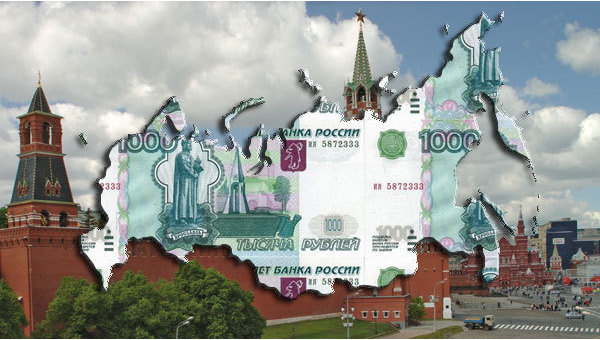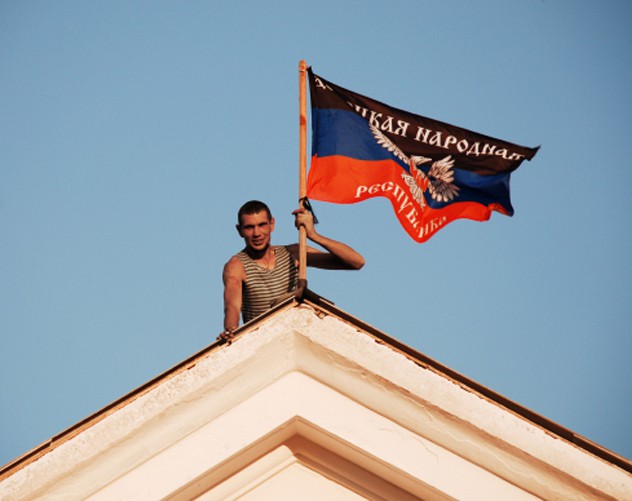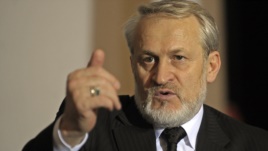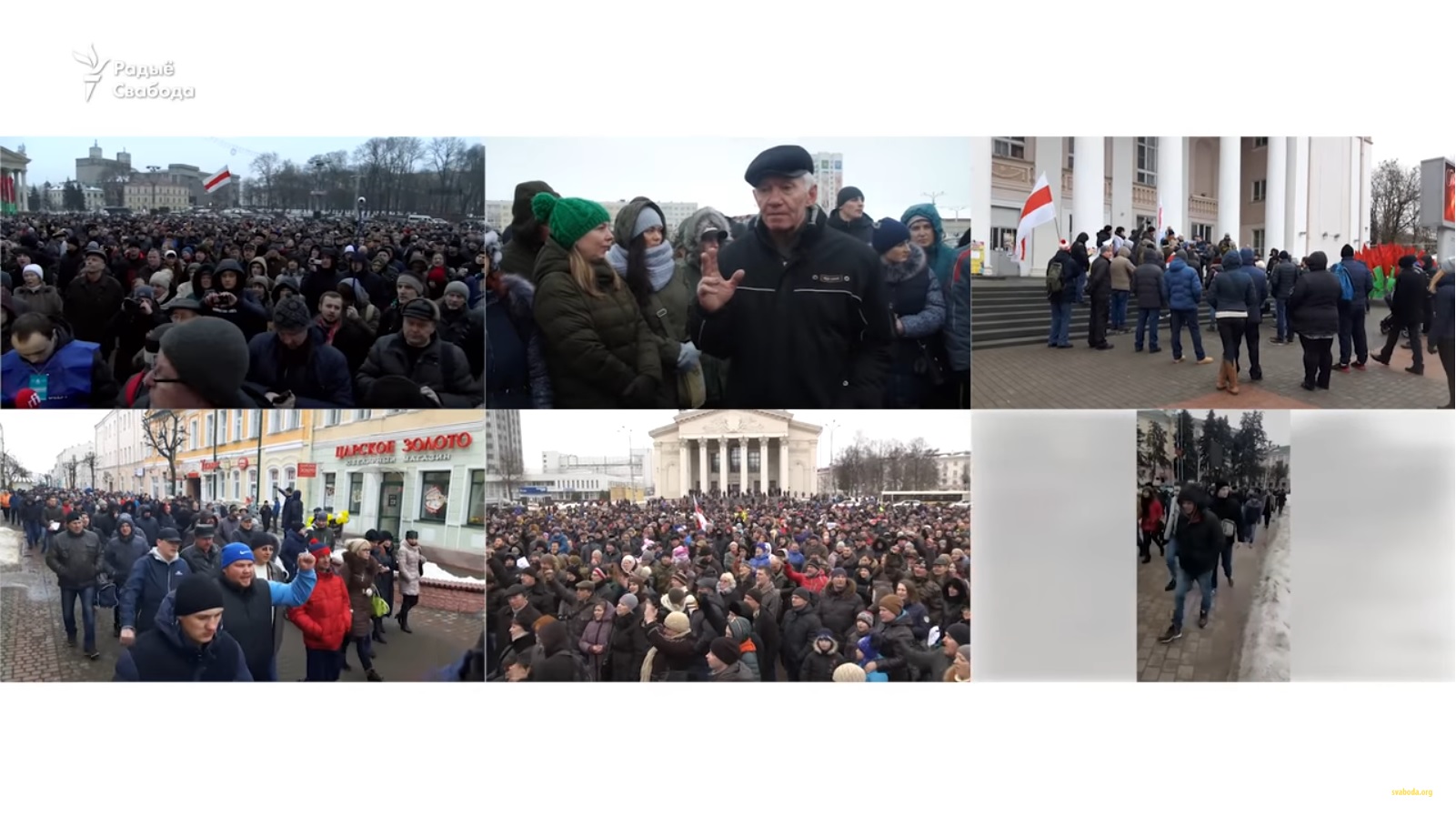Having ignored all previous Ukrainian proposals to deploy UN peacekeepers to eastern Ukraine, Putin now claims that Russia is drafting a resolution for the UN Security Council (UNSC) to send peacekeepers to patrol the front line in the Donbas. What is the reason for such a shift in Russian policy and where is the catch?
Putin’s peacekeepers for the Donbas
On 5 September, Russian President Vladimir Putin told at a press briefing after a BRICS summit in the Chinese city of Xiamen that Russia intends to draft a resolution for consideration of the United Nations Security Council, suggesting lightly armed UN peacekeepers to eastern Ukraine, where war between government forces and Russian-backed militants has entered its fourth year. Peacekeeping troops could provide safety for the ceasefire monitors from the Organization for Security and Cooperation in Europe (OSCE), which travel across Donbas to monitor the observance of a ceasefire outlined by the Minsk agreements to stop the war.
The Russian president stressed that the potential UN mission should operate only on the contact line between Ukrainian and Russian-hybrid forces, effectively – the border between territories controlled and uncontrolled by the Ukrainian government.
It would be useful “to resolve the problem in Ukraine’s southeast,” suggested Putin.
The Russian president thinks, “And this decision cannot be made without direct contact with representatives from the self-proclaimed Donbas republics, DNR and LNR.”
Vassily Nebenzia, the Russian envoy to the UN, said that there were no immediate plans to call for a vote on the proposed resolution. “We are not talking about voting yet. We are circulating it for consideration,” he told reporters.
Background
Back in 2014 and 2015, representatives of Ukraine and Russia signed two ceasefire agreements under the auspices of the Organization for Security and Co-operation in Europe (OSCE) to halt the war in the eastern Ukrainian region of the Donbas. The Minsk Protocol was signed on 5 September 2014, so-called Minsk II was signed in January 2015 to revive the failed Minsk Protocol. Both agreements didn’t stipulate any foreign peacekeeping forces in the Ukrainian territory. Moreover, both explicitly demand the pullout of all foreign armed formations, equipment, mercenaries from the territory of Ukraine.
In March 2015, Ukraine’s President Petro Poroshenko sent an official letter to the UN Secretary-General and the President of the UN Security Council, asking to deploy a peacekeeping mission to the Ukrainian territory under the auspices of the United Nations. This letter was distributed on 2 April 2015 as an official document of the UN Security Council (UNSC).
Read also: Ukraine’s Security Council to appeal to UN on introducing peacekeeping forces
Since then, Russia kept sabotaging Ukraine’s proposals to deploy UN peacekeepers to the Donbas. In June 2016, Russia even claimed that Ukraine had never made such request to the UNSC. Russia ruled out any possibility of a UN peacekeeping operation in the Donbas. Until yesterday.
Ukraine’s stance on Putin’s proposal

Ukraine has reacted harshly to Vladimir Putin’s proposal, stressing that peacekeepers should be deployed over the whole territory uncontrolled by the government, and especially the Russian-Ukrainian border currently uncontrolled by Ukraine, and not only on the boundary between ORDLO (areas of Donbas under control of the Russian proxy “Donetsk and Luhansk Republics,” pink on the map above) like Vladimir Putin suggests.
The Ukraine’s Ministry of Foreign Affairs published a comment regarding Putin’s statement on the prospect of deployment of UN peacekeepers in the Donbas. The key points of the MFA comment are:
- The deployment of a UN peacekeeping operation could contribute to the restoration of peace and security in the east of Ukraine.
- Any international peacekeeping presence must be deployed by consent of and after extensive consultations with the Ukrainian side.
- It must involve the withdrawal of all occupation troops and mercenaries.
- It must ensure reliable control over the Ukrainian-Russian border to prevent Russian military, weapons, equipment, and mercenaries from infiltrating the Ukrainian territory
- Any presence of military or other personnel of the aggressor state in the territory of Ukraine disguised as peacekeepers would be out of the question.
- Ukraine is ready to address the initiative to deploy a UN peacekeeping operation in the Donbas.
MP Iryna Herashchenko, a Ukraine’s humanitarian envoy to the Minsk talks group, wrote on her Facebook page, “The confrontation line has become a confrontation line because of Russia’s aggression.” Peacekeepers should be deployed over the whole Ukrainian territory currently uncontrolled by Kyiv “to monitor the security situation and demilitarization,” Herashchenko said, and “their mandate should end on the Ukrainian-Russian border.”
Ukraine’s Ambassador to the UN Volodymyr Yelchenko said the mission should also be deployed on the border between Russia and Ukraine to help monitors report on flows of weapons and fighters coming from Russia.
International reaction
Germany has welcomed Russian President Vladimir Putin’s agreement to send UN peacekeepers to eastern Ukraine. German Foreign Minister Sigmar Gabriel said that he was “very pleased to see this first signal” that Putin “wants to further discuss a demand which Russia had rejected in the past, namely, the use of… a blue-helmet mission in eastern Ukraine to implement the cease-fire.” According to Gabriel, “More importantly, this offer of a UN mission in eastern Ukraine shows that Russia has undergone a change in its politics that we should not gamble away.”
Later, spokesman for the Germany’s Federal Foreign Office Martin Schaefer stressed in a statement, “The practice of engaging separatists in the negotiation process on peacekeeping in this or that region is unacceptable and unknown to the UN.”
“It is inappropriate to talk only about the contact line because the separatists are hampering the OSCE Special Monitoring Mission’s access throughout the eastern part of Ukraine, and not only along the contact line,” clarified Schaefer.
Why now and what’s wrong
There can be several explanations why Russia has put forward the peacekeeping initiative and why it has happened now.
Attempt to relegate the Ukrainian initiatives to the background
Since 2015, Ukraine kept proposing to deploy a UN peacekeeping mission to the Donbas. However, Ukraine demands to regain control over the Ukraine-Russian border to cut off Russian supplies for Russian hybrid forces in the occupied territories and deploy UN peacekeepers all across the uncontrolled territory. Meanwhile, Russia proposes to station the mission along the contact line, retaining Russia’s control of the conflict zone. Such a step would turn the line of the contact into the de-facto state border.
Slender hope to legalize the Russian troops in Ukrainian territory
Russia may still hope to freeze the conflict in the Donbas using the same scenario it has applied in Moldova and Georgia, namely legalizing the stay of Russian troops in the occupied territory as peacekeeping forces. Re-deploying the Russian forces as peacemakers would bypass the Minsk II paragraph demanding the pullout of all foreign armed formations.
Hope for easing sanctions while leaving the conflict unresolved
First of all, Russia’s change of heart regarding the UN peacekeepers in the Donbas shows that international sanctions work. Russia seeks to ease the sanctions, displaying peace efforts as a signal that it tries to reduce its involvement in the Donbas conflict. The Russian initiative may look like agreeing to one of the key Ukrainian demands.
But the Russian proposal, if implemented, would freeze the conflict. Even if the UN peacekeeping mission won’t include Russian troops, Putin wants to deploy the UN forces along the contact line, separating the occupied parts of Donetsk and Luhansk oblasts from the rest of Ukraine. This means that 408 km of the Ukrainian border with Russia would remain under control of Russia’s puppet Luhansk and Donetsk “people’s republics,” keeping intact Russia’s channels of supplying the occupied territory with manpower, arms, equipment, fuel, foodstuffs.
Lower expenses for running the fake republics
Putin’s initiative also implies lower expenses for Russia. Russian-hybrid troops would get lower wages, having no possibility to conduct bombardments to get so-called “battle bonuses,” less ammunition would be consumed, less manpower from Russia would be required.
Russia failed to sell its proxy “republics” to Ukraine to make the conflict’s host state fund them while they would remain under Russian control. Last winter, the Russian Government made the first steps on the path leading to the further recognition of the LNR and DNR as independent states by Russia. Earlier, Russia made the same steps in two Georgian regions of Abkhazia and South Ossetia, occupied since the 1990s, to recognize their independence in 2008 just after the Russo-Georgian war.
Read also: Policy shift shows Russia preparing to recognize its puppet republics in Donbas
Another Russian attempt to distance itself from the conflict
The Ukrainian Foreign Ministry highlights in its comment:
The information published by mass media concerning the statement by the President of the Russian Federation shows that Russia, as a party to the conflict, once again attempts to present its aggression as an internal Ukrainian conflict and distort the very idea and purposes of launching a peacekeeping operation, which would not work towards achieving the principal objective of establishing sustainable peace in Donbas and restoring the territorial integrity of Ukraine.
Nevertheless, the Russian proposal once again shows that Russia keeps its puppet republics under full control. The leadership of the LNR and DNR have never endorsed the idea to deploy the international peacekeepers or to arm the monitors of the OSCE. In 2016, the occupation authorities staged several-thousand strong rallies in Donetsk and Luhansk “against armed missions in Donbas.” And now just after the Putin’s statement, both “republics” support the Russian proposal to deploy UN mission to the Donbas.
Argument against sending US lethal military aid to Ukraine
Another reason why Putin has voiced such an initiative right now may be connected to processes in the White House, which is in the midst of making a decision on whether to send a package of lethal defensive military aid to Ukraine. Putin’s peace initiative is another false argument for the White House to refuse arming Ukraine. The argument can be worded as “why give lethal aid if there is no hot conflict now?”
Other arguments against giving lethal arms to Ukraine were mentioned in Russian and Western media, such as:
- “Sending lethal weapons to Ukraine would cause a rift between the United States and its main European allies, Germany and France, which are leading diplomatic efforts to settle the conflict.”
- Sending lethal weapons to Ukraine “is a recipe for military escalation.” “It would be reasonable to expect that the rebels will be armed with more modern hardware if US supplies start coming in. That can only make the war even deadlier.”
- Arming Ukraine, “the United States is walking into a proxy war with Moscow.”
At the same press conference in China, where Putin made a statement about the Russian peacekeeping proposal, he has also criticized the intention of the Trump Administration to give lethal arms to Ukraine. Of course, Putin repeated the “argument” that providing Ukraine with defensive weapons would escalate the conflict. The Russian President warned, “Supplying weapons to a conflict zone is not conducive to peace, it just aggravates the situation.” That’s true, and that is the reason why Russia keeps supplying tanks and other military equipment to the conflict zone. Unfortunately, Putin didn’t explain how defensive weapons can aggravate the situation.
And the Russian president threatened that his puppet republics would assault other Ukrainian territories outside the conflict zone. “It’s hard to imagine how the self-declared republics would respond. Perhaps they would deploy weapons to other conflict zones,” Putin said.
Read more:
- Georgia’s lessons of peacebuilding now instructive for Ukrainians
- Donetsk separatist referendum organizer: “Return to Ukraine is inevitable, Donbas is Ukraine”
- Appointment of US Special Representative for Ukraine positive for war in Donbas
- Zapad-2017: military games with an unpredictable ending
- Transnistria. Why Russia should leave the occupied territories
- The Kremlin’s new preoccupation: how to get out of the Donbas
- European Court of Human Rights ruled Russia responsible for actions of Transnistria
- Why Ukraine must avoid the Transnistrian scenario
- European Court of Human Rights hints Russia responsible for Donbas damages
- The Kremlin changes its Donbas war narrative
- Russian involvement in Ukraine’s Donbas “republics”: 10 things you should know
- Ukraine helps Moldova regain control over border in Transnistrian region
- Ukraine has not “lost” uncontrolled Donbas yet, new poll shows
- Georgia slams “elections” in occupied Abkhazia as legitimizing Russian aggression
- Stages of Russian occupation in a nutshell
- Policy shift shows Russia preparing to recognize its puppet republics in Donbas
- Occupied Donbas risks becoming like South Ossetia
- Ukrainian attitudes harden against Kremlin’s positions on Donbas
- Nagorno-Karabakh: Who is to blame and who benefits?
- Will the peace corps bring peace to Donbas?
- Ukraine’s Security Council to appeal to UN on introducing peacekeeping forces
- “DNR” will shell schools on September 1 and ask for Russian “peacekeepers” — Ukrainian defense official (2015)
- Russia moves convoy of “peacekeepers” near Ukraine as potential invasion escalates (2014)
- Russian military near Kharkiv border bear “peacekeeper” markings (2014)








